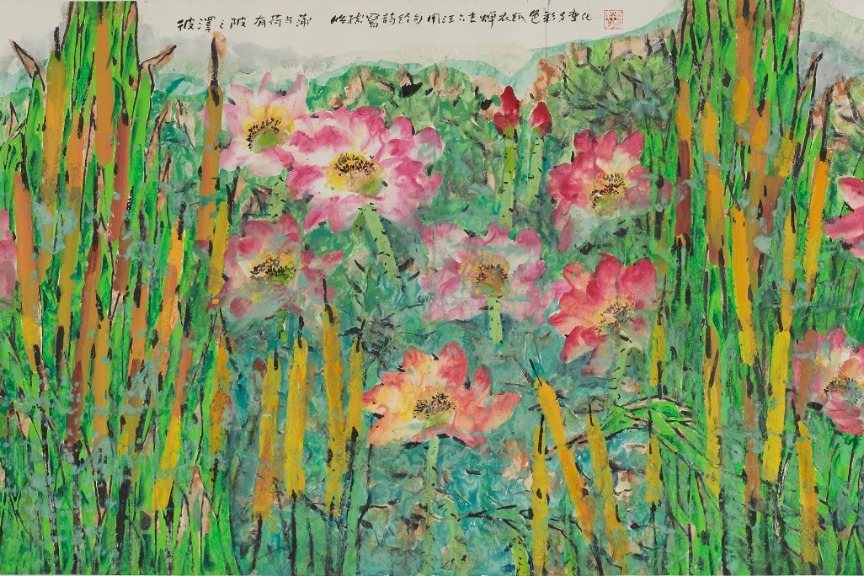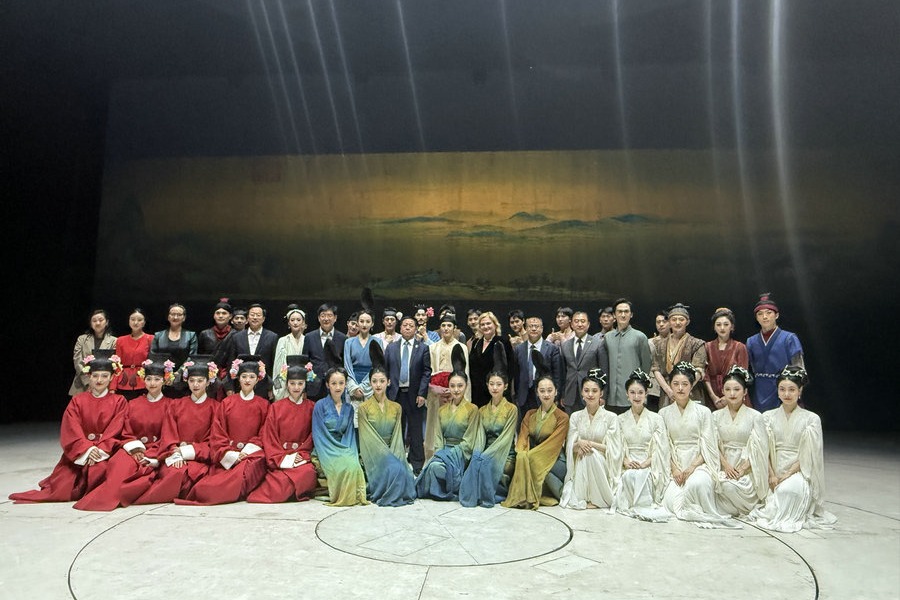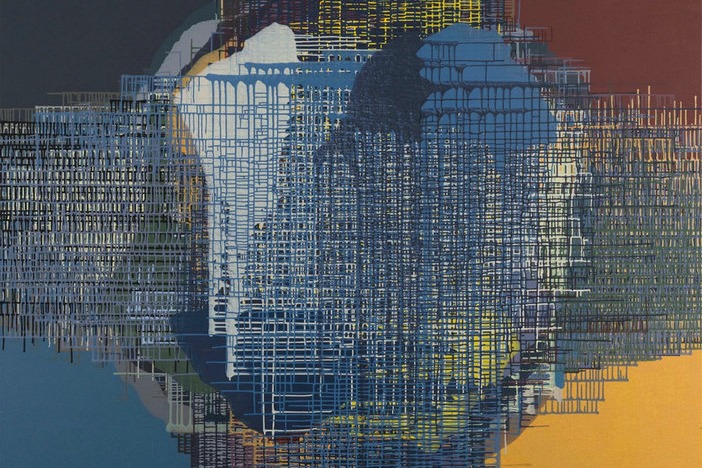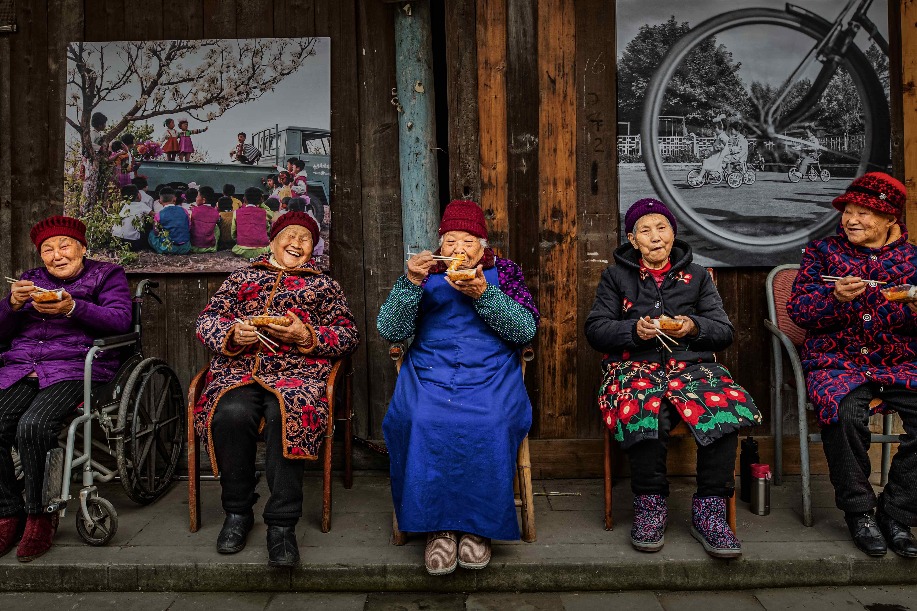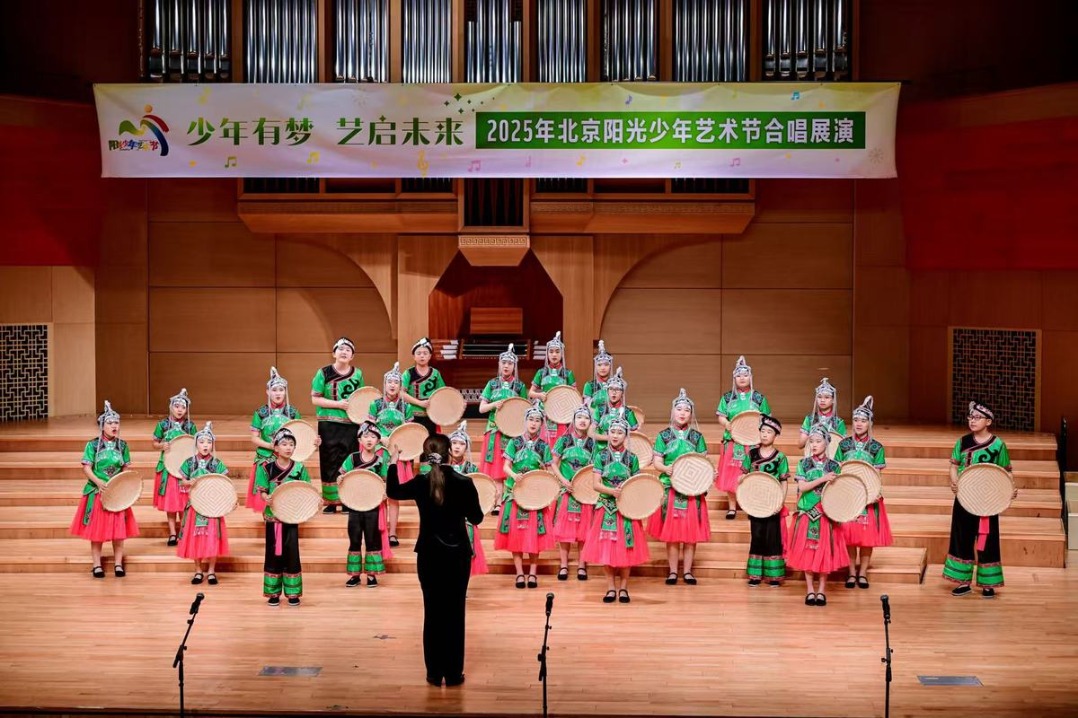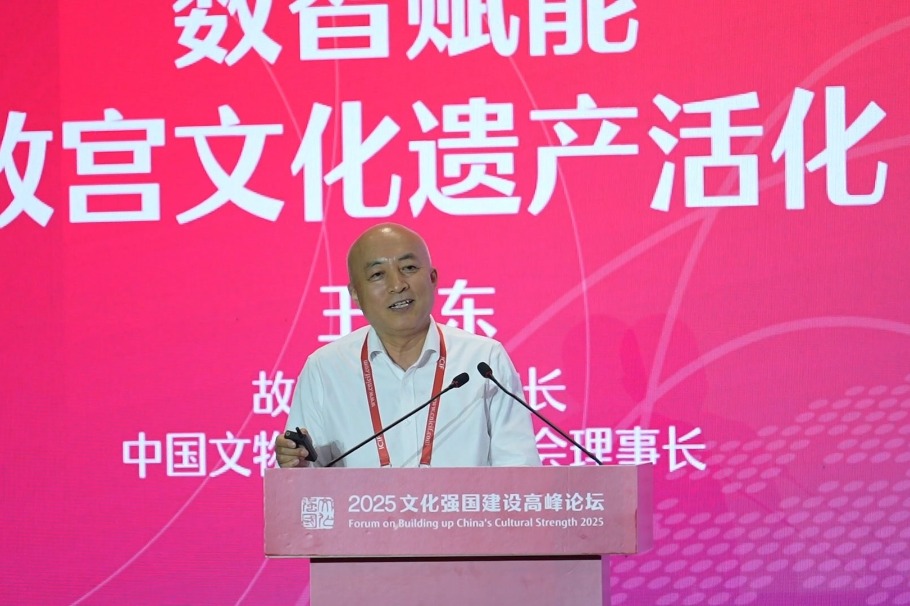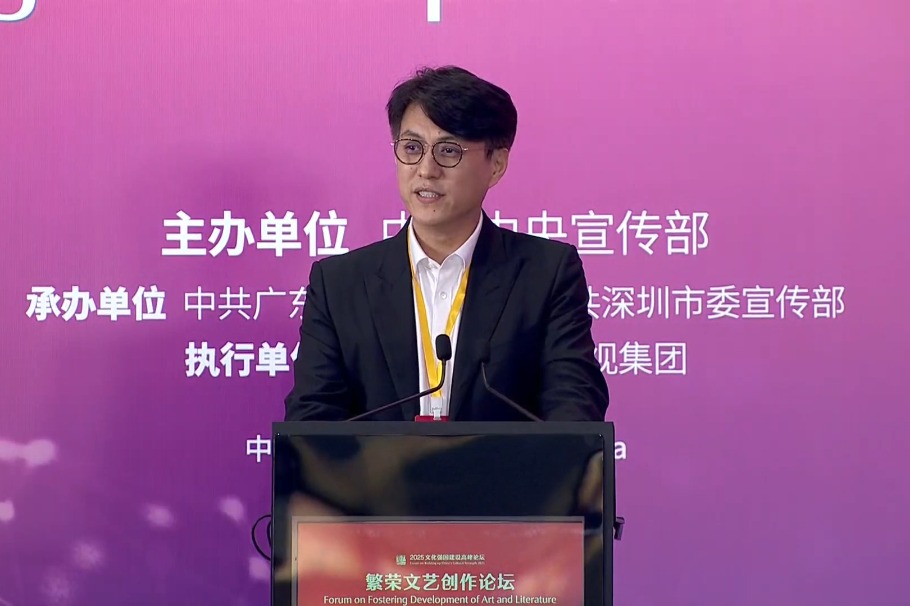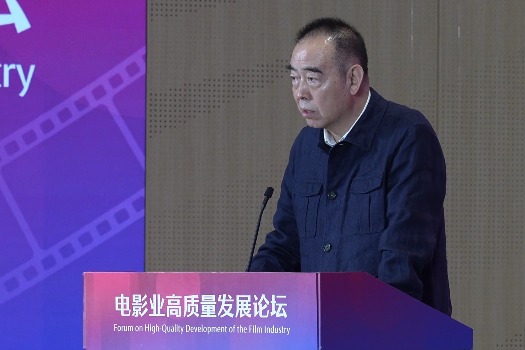Yang Chaoming: Why can Confucianism transcend time and space?

With archaeological blind boxes triggering people's interest in archaeology and online short films like Exploitation of the Works of Nature allowing traditional skills to make a comeback, traditional culture is gaining popularity once again. If traditional culture is a big tree, Confucian culture is undoubtedly its trunk.Yang Chaoming, president of Confucius Research Institute of China, pointed out when giving an exclusive interview to W.E.Talk of China News Service recently that Confucianism itself is a thought that transcends time and space, and so long as humans still live together, it can still be used as the model of conducting oneself in society even after one hundred generations. He feels glad to see some new forms of traditional culture, but has his own concerns over them as well.
Here are excerpts from the interview:
China Newsweek: Chinese people show a growing interest in traditional culture in recent years. What reason do you think is behind this fever?
Yang Chaoming: There are many reasons for this phenomenon. From a broad historical perspective, we can see Chinese people in modern times once got lost and they thought our economy, technology and materials lagged behind others, so did even our health. Of course, Confucianism, as the backbone of traditional culture, did show certain deviation in the process of getting integrated into the society before modern times. The backwardness of modern China enlarged this deviation, which led to the absence of self-confidence in that period.
After 1980s, we dragged ourselves from the state of confusion and began to reflect on this issue. Traditional culture started to make a comeback. Since reform and opening-up, China's has been developing fast. The world begins to learn about China once again. During this process, people with vision and insight around the world noticed characteristics of Chinese culture. In the past few years, China's efficient response to the sudden outbreak of the Covid-19 pandemic bears testimony to the strong strength of traditional Chinese culture.
Another basic reason lies in the inherent spirit of traditional Chinese culture. It hopes the society is harmonious and peaceful, and people can cultivate their morality, and observe ancient doctrines and truths in their behavior. Traditional culture is exerting an increasingly strong influence. Though we once had some misunderstanding about it, but we can go out of this misunderstanding and confusion.
China Newsweek: The backbone of Chinese culture is Confucianism, and the founder of Confucianism is Confucius. How should the value of Confucianism be treated today? Can it transcend time and space to help us in the new times?
Yang Chaoming: The backbone of traditional culture is Confucianism, and it doesn’t mean that it rejects others. Confucianism itself absorbed achievements of different civilizations in different periods. Confucianism is about "possession of the talent and morality of a sage and governance of the state", and advocates that we should make self-improvement to let common people live in peace and happiness. It is a philosophy instead of a method. It has comprehensive awareness, systematic concept and consideration of overall situation, and is valid everywhere. What is a method? It is only suitable for specific space and time. It works here, but may not work in another place. It works today, but may not work in another time. So Confucianism itself can transcend time and space. So long as humanity still lives together, it must think and get adapted to this principle. Therefore, Confucianism is about benevolence and people; and it studies human nature and the value of people. This theory is about the harmony between one person and another, between individuals and the group, between people and the society, and between humanity and nature.
All of us have both natural attributes and social attributes. People need sociality at any time, which remains unchanged. So long as there are social connections among human beings, they must think how to deal with interpersonal relations. Today, Confucius' teachings are still like Confucius himself—that is "you feel he is mild when approached, but he is incisive when being heard". We can say this statement is overarching and eternally correct. It will help us to conduct ourselves and govern the society. I think the spirit of the future world is exactly in China.
China Newsweek: How do you think traditional thoughts adapt to the context of the current society? How to make young people accept them?
Yang Chaoming: As middle school students, we all studied some traditional culture and thoughts, but these were all fragmentary knowledge. Confucianism is an entire body of thoughts. If it is studied as a whole, you will find each remark is incisive. The method Confucius put forward is simple. Perhaps you won't like the method at once, but it contains more wisdom than seen at first glance. His greatness lies exactly in the fact that it seems simple, but contains complicated thought. Great truths are always simple.
When it comes to Analects of Confucius, some say that the older you are, the better understanding you have. If you still haven't gone through hardships and met with sophisticated human nature and society, probably you are unable to understand the truths among them. So in terms of traditional culture, we should teach students in accordance with their aptitude and at a proper age.
Traditional culture is just like a river. It flowed to yesterday from the day before yesterday, and flowed to today from yesterday. It will continue flowing in the future. Then does the water in this river belong to yesterday or today? We should search for a suitable route to understand this river. In fact, traditions are consistent all the time. They took shape and functioned in history, and then they must be valid today.
For the time being, we always like to make traditional culture fashionable in order to cater to our younger generation. We would say "Look! It is fun." I have noticed that Confucius—the sage in our heart, was transformed into a funny cartoon image on some websites. This reinvention that attaches too much importance to fun shows no reverence for national cultural traditions. What we should do is not only to design appropriate attire adapted to the times for traditional culture, we should also make great efforts to let the common people especially children today understand the beauty of traditional culture and foster their affection and reverence for the outstanding culture of our motherland.
China Newsweek: "Harmony between humanity and nature" is a philosophy about humanity and nature in ancient China. How should we perceive this philosophy today?
Yang Chaoming: The thought of harmony between humanity and nature is really profound. But it is quite easy to outline this theory. In my opinion, the harmony between humanity and nature is the unity between the two. Of course, here nature does not only refer to mountains, rivers, starry sky…The so-called nature means those pure things in time and space, and it also refers to intrinsic quality of humans. It is just like people. What is people's natural state? The newborn baby is innocent, but he or she becomes no longer pure when growing up due to the influence of the external environment. The natural or external form is changeable (formation or disappearance), but the essential attribute of nature remains unchanged, and it won't die out. So the homogeneity of spirit and nature is a kind of existence beyond all forms.
Mencius claimed that "The great end of learning is nothing else but to seek for the lost mind", which means the great end of learning is just to return to your original goodness. It is to unify one's body and mind. In philosophy, forms are changeable, but the content remains the same.
Confucius said that the system of etiquette within three dynasties might vary in forms, but its essence will not change. In Analects of Confucius, Zizhang asked Confucius: "Can we know the system of etiquette for the coming ten dynasties in advance?" Confucius answered: "The system of etiquette of the Yin Dynasty inherited that of the Xia Dynasty, so we can know what was added to or scrapped from it; the system of etiquette of the Zhou Dynasty inherited that of the Yin Dynasty, so we can know what was added to or scrapped from it. We can also know the system of etiquette of dynasties following the Zhou Dynasty, even if 100 dynasties later." What Confucius would express was that the cardinal principle for how people deal with each other remains unchanged no matter how many dynasties later. So China's thought of harmony between humanity and nature is to make us understand our own essential state. So long as we understand this essence, we will follow it. Our mind won't be confused by any forms if we follow the most fundamental truth. We return to our inherent quality and resume the lost goodness; let nature take its course, advocate good virtues and practice our own preach. We can say that the value system of the harmony between humanity and nature actually contains a lot of teachings, which is the dialectical unity.
China Newsweek: The philosophy in traditional Chinese culture makes us get along with the world and nature in a better way. However, China is facing new challenges at present. How do you think we can make the world better understand China and tell China's stories to others in a better way?
Yang Chaoming: We mentioned the thought of harmony between humanity and nature just now. This is an authentic spirit must be held when telling China's stories. If we don't understand this spirit in Chinese culture, we might not be able to tell our stories clearly. That is to say, we must understand China before introducing it to others. China's thinking of "harmony between humanity and nature" explains explicitly the concept of "The greatest ideal is to create a world truly shared by all" in our culture.
When we say "the world is for the public", the public here refers to public consciousness and awareness of social morality, stressing responsibilities and obligations as well as people's sociality. Only under the guidance of such thinking, can we Chinese have deep love for the country and maintain a global vision, can we have a sense of national identity for China and the concept of "a human community with shared future" for the world.
From Confucius to Sun Yat-sen, and from Sun Yat-sen to today, Chinese people have been embracing the idea of "the world is for the public". We Chinese uphold the idea of harmony in diversity and also approve that of "All people under the heaven are of one family".Harmony in diversity means we should not violate the principle; but "all people under the heaven are of one family" is to seek common ground while reserving difference. Although China faces a lot of challenges when it interacts with the rest of the world, Chinese people have been pursuing the harmony of the world by practicing the concepts of "harmony in diversity" and "all people under the heaven are of one family". Nowadays many young people emphasize their entitlement to freedom and rights, but ignore their own obligations and responsibilities. In fact, responsibilities, obligations, community and harmony are exactly the way of thinking of us Chinese and the virtues we value most. A lot of problems will appear if we deviate from traditions.
We must understand a truth: the prerequisite for full confidence in our culture is our sufficient knowledge of it. If we don't even understand Chinese culture, how can we be confident in it? Some people think Chinese culture is about the thoughts that women are despised and the nobles are autocratic. This is a misunderstanding of "three cardinal guides". Actually it is not our culture. We should understand China first before introducing it to the world by telling our stories. Perhaps we don't lack global attention, but lack essential understanding of China.?
The interview record was first published on January 10, 2022 by China News Service.

















